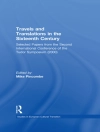In ‘The Sorcerer, ‘ W. S. Gilbert masterfully weaves a satirical narrative set within a whimsical Victorian world, where a young couple seeks to secure their love through the magical intervention of a sorcerer. Combining elements of operatic performance with incisive social commentary, the play explores themes of love, class, and the folly of desire. Gilbert’s trademark wit shines through in the clever, rhythmic dialogue and amusing situations that unfold, embodying the spirit of the late 19th-century theatrical movement while poking fun at societal conventions. W. S. Gilbert, a prominent figure in the world of comic opera, co-created the enduringly popular partnership with composer Arthur Sullivan. Their collaborations have become cornerstones of musical theater, with Gilbert’s keen sense for humor and satire often reflecting his experiences in Victorian society. His diverse background in law, literature, and theater informed his ability to capture the intricacies of human relationships, ultimately contributing to the rich character development and plot twists in ‘The Sorcerer.’ This enchanting work not only entertains but also invites readers to reflect on the nature of love and societal expectations. Recommended for fans of musical theater, literature that intertwines humor with deeper themes, and anyone who appreciates sharp, insightful wit, ‘The Sorcerer’ is a delightful exploration of enchantment and irony.
关于作者
William Schwenck Gilbert, known predominantly as W. S. Gilbert, was an eminent English dramatist, librettist, poet, and illustrator, born on November 18, 1836. A prominent literary figure of the Victorian era, Gilbert is best remembered for his fruitful collaboration with the composer Arthur Sullivan, with whom he crafted fourteen comic operas that continue to enchant audiences across the globe. Among their most celebrated works is ‘The Sorcerer’ (1877), an operatic marriage of Gilbert’s incisive wit and Sullivan’s melodious compositions. Gilbert’s penchant for satirical humor, combined with his adroit use of the English language, the ‘topsy-turvydom’ of his plots, and his penchant for poking fun at the establishment, constituted the hallmark of his literary style, one that has influenced English theatre and comedy considerably. His contributions to literature and theatre were recognized in 1907 when he was knighted for his services to drama. Gilbert’s legacy endures through the ‘Gilbert and Sullivan’ operas and the phrase ‘Gilbertian’ which has entered the lexicon to describe his unique blend of whimsy and satire. W. S. Gilbert passed away on May 29, 1911, leaving behind a body of work that continues to be celebrated and performed around the world.












